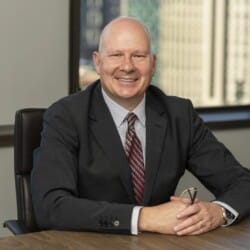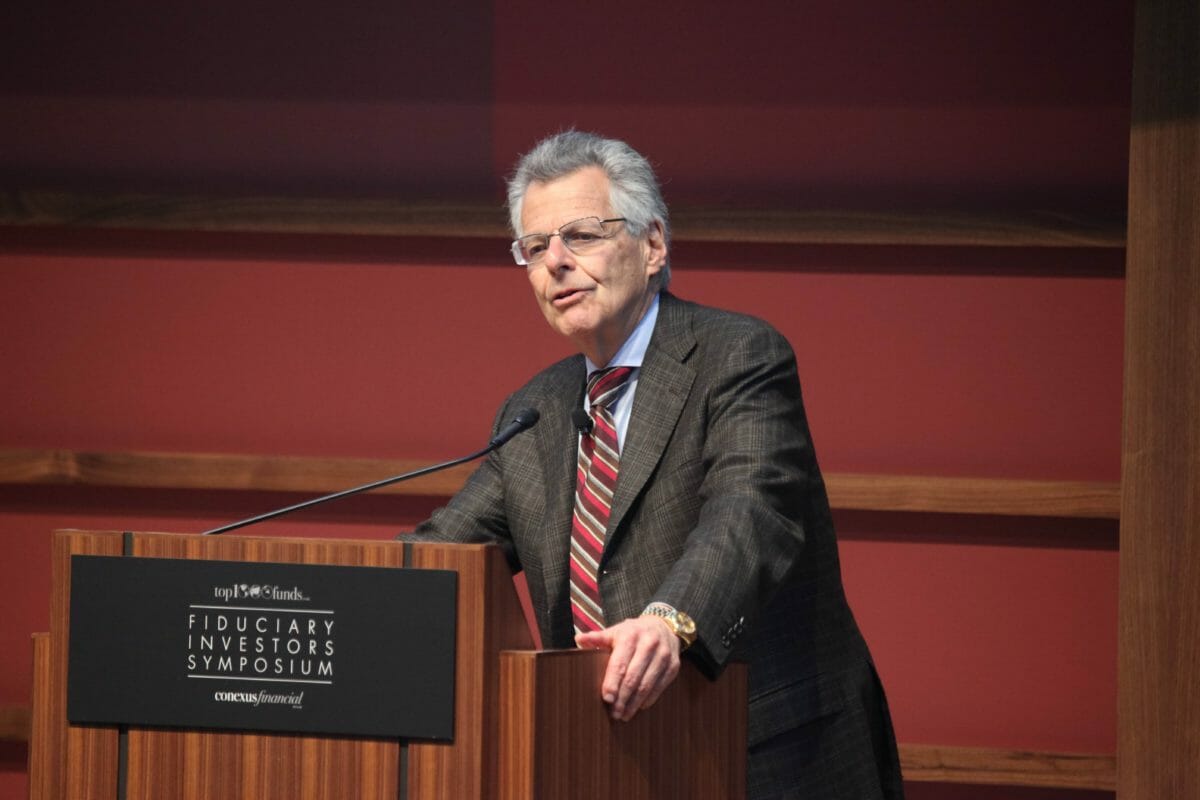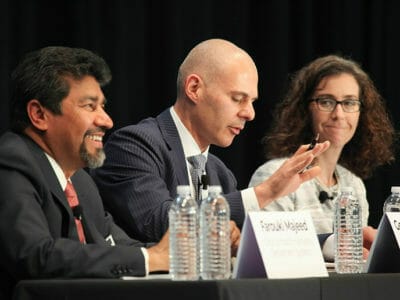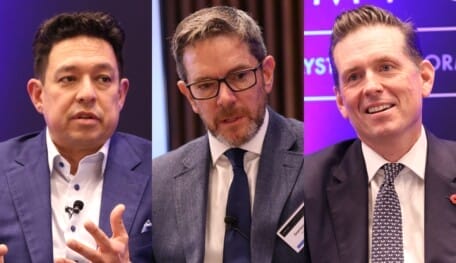Thanks for subscribing
You’ll now receive our twice-weekly newsletter featuring news stories, case studies and research that relate directly to the work of investment professionals at pension funds, endowments and sovereign wealth funds. Please feel free to contact us if you have any any queries or ideas you have about the publication.
News
Texas Teachers’ CIO questions TPA, DAA value-add
Chief investment officer of the $225 billion Teacher Retirement System of Texas Jase Auby has voiced reservations about the total portfolio approach, particularly regarding the robustness of its central feature, the top-down decision-making process. He also outlined why the fund doesn’t consider dynamic asset allocation a durable source of alpha.
Investor Profile
Complexity to clarity: How AP4’s tech overhaul slashed risk and costs
A new investment management platform at Swedish buffer fund AP4 has taken almost ten years to come to fruition. Increased efficiency, lower costs and risk make it worth the wait, says head of risk and operations Nicklas Wikström.
Partnered Content
Infrastructure investors look beyond US to capture Europe’s green premium
Europe, buoyed by a new competitiveness roadmap and its ongoing commitment to the climate transition, is set to attract more institutional capital, IFM’s latest research shows.
Infrastructure
Aware Super mulls return to infra funds; builds AI-driven data edge
Aware Super is considering a return to infrastructure funds after years of favouring direct investments. The infrastructure allocation currently stands at $15 billion and the fund sees benefits to access a “broader set of offerings” and opportunity sets via fund commitments to GPs, its head of infrastructure Mark Hector says.
Podcasts
Treasurer Steiner on Oregon’s private equity future
Top1000funds.com editor Amanda White speaks to Oregon State Treasurer, Elizabeth Steiner, about the future role and expectations of private equity, how a maturing of the asset class puts pressure on returns, and the private/ public asset mix in the fund’s four-yearly asset allocation review which has just begun.
Organisational Design
Why asset owners should not outsource innovation
Asset owners have traditionally counted on external asset managers to pursue bold innovations rather than stretching their limited internal resources to do so. But leading Stanford academic Ashby Monk has warned in a new paper that this long-standing model is distilling short-term thinking in pension management.
Private Credit
HOOPP: Light covenants in private credit are a growing source of concern
The boom in private credit has been accompanied by a spike in lighter covenants, reducing protection and guardrails for lenders says Jennifer Shum, senior managing director, structured and private credit at HOOPP, and warns of mounting risks in private credit.
Featured Story
West Yorkshire prepares to up the pressure on Shell and BP
A new approach to holding the major oil companies to account will see the West Yorkshire Pension Fund, together with a cohort of other UK and European pension funds, demand BP and Shell explain their business plans in a world of declining demand for fossil fuels.
Technology
CalPERS board warned of risks in AI investments including China innovation
An investment banking expert has warned the CalPERS board of the risks inherent in AI, emphasising the importance of investors understanding how their exposure to AI is at risk because of Chinese competitors.
Featured Story
Europe rearms, defence returns surge, asset owners rethink exposure
Years of hard-line exclusions of the defence industry kept many asset owners out of one of the strongest-performing sectors. Now, as Europe rearms, investors are reworking defence policies – cautiously and under intense scrutiny.
Sustainability
USS paper urges governments to do more to support climate policy
A new report from USS and the University of Exeter, argues that investors who focus on decarbonising their portfolios won't change real-world decarbonisation and would have more impact on climate change by buying transition investments.
Sustainability
PRI slashes reporting burden to preserve code relevance among signatories
The Principles for Responsible Investment will reduce signatories’ responsibilities in their annual mandatory reporting from 240 questions to just 40 next year. The outgoing PRI chief David Atkin explains the move and why asset owners have a big role in stabilising the discussion around responsible investment.
Sustainability
Climate politics: BlackRock hits back at NYC Comptroller
The skirmish between the New York City Comptroller and BlackRock over climate alignment of the city’s public pension funds – a fight worth a $42 billion mandate to BlackRock – highlights the complexity and impracticality of aligning climate expectations, reporting requirements and business imperatives.
Private Equity
Oregon’s private equity future
Oregon State Treasury is one of the longest-standing investors in private equity but as allocations pushed beyond the outer policy limit and a maturing asset class puts pressure on returns, a recalibration was necessary. Amanda White spoke to Oregon State Treasurer, Elizabeth Steiner, about the future of private equity.
Featured Story
Dutch pension funds face tech reckoning, warns central bank
The Netherlands' Central Bank has warned the country's pension funds that their €150 billion ($177 billion) investments in tech companies, representing almost 43 per cent of their listed equities portfolios and 8 per cent of their total balance sheet, is at risk from a potential AI bubble.
Infrastructure
APG’s answer to aligning government and investment goals in infrastructure
An increasing push to invest in home markets means asset owners need better frameworks for aligning government expectations with investment goals. APG’s three-pronged approach for public infrastructure investments could act as a guide for other investors looking to balance fiduciary duty with political demands.
Fixed Income
CalPERS touts fixed income wins, gears up for TPA
At the annual review of its fixed income portfolio, CalPERS staff explain how active management, value-add strategies and the hunt for alpha are paying off, with ESG integration giving it a valuable edge and informing it to invest in companies under pressure like Boeing at the right time.
FIS Stanford 2018
FIS Stanford Photo Gallery
View photos from the 2018 Fiduciary Investors Symposium, held at Stanford University, United States.
FIS Stanford 2018
China’s enticing, challenging market
Inefficient markets and an explosion of technological innovation fuelled by Millennial consumers make China a tantalising prospect but accessing strong returns there isn’t as simple as it looks.
FIS Stanford 2018
Protecting human capital helps everyone
Investors have plenty to gain from helping to protect human rights in supply chains and managing the human costs during technological disruption and the transition to a low-carbon economy.
FIS Stanford 2018
How to follow megatrends to success
The big themes that will fuel growth in coming decades are interconnected and subject to change. An expert panel gave advice on riding societal change to outperformance.
FIS Stanford 2018
How the active complements the passive
Investors discuss the various ways that two styles often presented as if they are enemies in fact work hand in hand across portfolios to produce returns.
Asset Allocation
TRS strikes gold: Tiny allocation crushes its benchmark
This year, TRS doubled its tiny allocation to gold via a special fund that buys gold ETFs and mining companies. The strategy returned nearly 60 per cent, thanks to market conditions including inflation, geopolitics, government debt levels and de-dollarisation pushing gold higher.
News
Limited alternatives keep global capital anchored to the US
Singapore’s Temasek said while US exceptionalism may be “fraying”, there aren’t many alternative markets that can handle the same volume of global capital. Meanwhile, fellow sovereign fund GIC believes the greenback’s reserve currency status remains solid even though currency swings could spell trouble for foreign investors.
FIS Oxford 2025
LP demands for bespoke solutions define new era for private managers
Private asset managers can expect to work harder for LP capital as allocators increasingly look for more bespoke, flexible structures that meet their changing needs around liquidity, fee and types of exposures. Investors at FIS Oxford unpack how they approach manager relationships in the new era of private investments.
Asset Allocation
Fordham University dials up growth equity, cools on private credit
Fordham University CIO Geeta Kapadia is cutting back on private credit, calling it an asset class “less able to financially engineer returns” in a higher-rate world. She’s instead redirecting the $1.1 billion endowment to venture and growth equity and entrusting larger mandates to a smaller roster of high-conviction managers.
News
KIC eyes pivot to total portfolio approach in latest review
The $206.5 billion Korea Investment Corporation has become the latest asset owner weighing a shift into the total portfolio approach in an attempt to boost investment returns. After putting out an RFP for a consulting partner in May, it will conduct a review into early next year about TPA's feasibility.
InFocus
TAA critical to adding value over the next six to 18 months
After several painful years, geographical diversification is finally working and will continue to work, at least in the short term, with increasing signs of a valuation advantage for non-US stocks and bonds, according to T. Rowe Price’s Sébastien Page. He says it's time to make use of tactical asset allocation.
Investor Profile
USS swings into surplus but flags re-think after Thames losses
USS says losses in Thames Water have led to deep reflection on how it will invest in regulated assets in the future, flagging the need for consistent regulation to support pension fund investment. As the fund celebrates its 50th year it records a surplus for the first time since 2008.
Strategy
UK’s transition-focused SWF gets green light
UK Chancellor of the Exchequer Rachel Reeves didn’t waste any time approving the UK’s new SWF aimed at funding the energy transition. As it begins to lay down structure and governance frameworks critics point to the challenges of bringing projects to a level where they are investable.
































